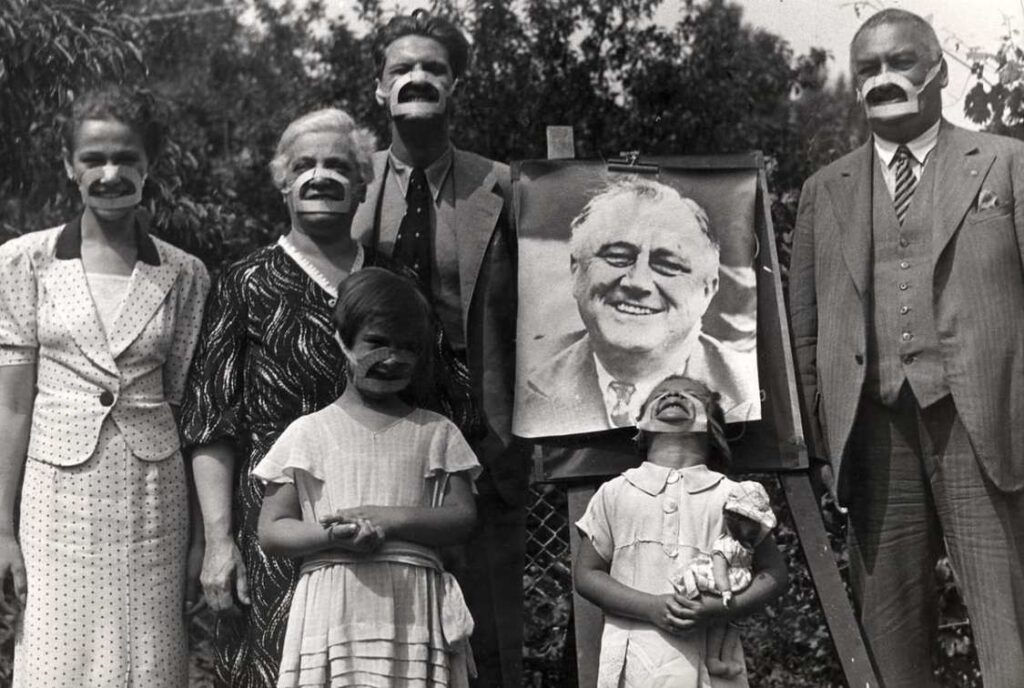Unmasking the Smile School of Budapest – A Unique Approach to Fighting Depression in 1937

Unmasking the Smile School of Budapest A Unique Approach to Fighting Depression in 1937
Introduction
In the annals of history, there are often hidden stories of innovative and unconventional methods employed to combat adversity. One such intriguing tale is that of the “Smile School” in Budapest, Hungary, in 1937. This institution gained attention for its unorthodox approach to tackling depression among women: wearing special masks designed to encourage smiles. In this blog post, we’ll journey back in time to explore the fascinating world of the Smile School of Budapest, its historical context, and the unconventional therapy that left a mark on the fight against depression.
The Context of the 1930s
The 1930s were a tumultuous time marked by economic hardships, political tensions, and societal changes. Hungary, like many other nations, was grappling with the aftermath of World War I and the Great Depression. Amidst these challenges, mental health issues, including depression, were becoming increasingly prevalent, particularly among women.
The Birth of the Smile School
Against this backdrop, a unique institution known as the “Smile School” emerged in Budapest in 1937. Founded by Dr. József Szádöczky, a Hungarian psychologist with a keen interest in the mind-body connection, the school aimed to address the rising tide of depression, especially among women.
The Smile Mask Therapy
At the heart of the Smile School’s unconventional approach was the use of specially designed masks. These masks were crafted to be aesthetically pleasing and painted with cheerful and vibrant expressions. The idea was simple yet profound: by wearing these masks, students were encouraged to smile, even when they might not feel like it.
How It Worked
- Mask-Wearing Sessions: Women attending the Smile School would participate in regular sessions where they wore these smiling masks.
- Group Activities: During these sessions, group activities such as singing, dancing, and storytelling were organized to create a positive and joyful atmosphere.
- Social Interaction: The school emphasized social interaction as a key component of therapy. Students would engage in conversations and share their experiences, fostering a sense of community.
- Mirror Therapy: Students were encouraged to look at themselves in mirrors while wearing the masks. This visual reinforcement aimed to evoke genuine smiles and positive emotions.
The Rationale Behind the Masks
The Smile School’s approach was rooted in psychological principles, including:
- Facial Feedback Hypothesis: This theory posits that our facial expressions can influence our emotions. Smiling, even when forced, can trigger a sense of happiness.
- Social Connection: By fostering a sense of community and belonging, the school aimed to combat the isolation often associated with depression.
- Positive Reinforcement: The use of smiling masks provided a tangible and visible form of positive reinforcement.
Controversy and Criticism
Naturally, the Smile School’s methods raised eyebrows and garnered both praise and criticism. While some hailed it as a creative and innovative approach to mental health, others questioned the efficacy and ethics of using masks to manipulate emotions.
Legacy and Impact
The Smile School of Budapest may have been a brief chapter in the history of mental health treatment, but its impact endures. The school was a precursor to modern-day therapies that acknowledge the mind-body connection and the role of social interaction in mental well-being. Additionally, it prompted discussions about the intersection of psychology, emotion, and expression.
Conclusion
The Smile School of Budapest, with its use of special masks to combat depression, remains a unique and thought-provoking chapter in the history of mental health treatment. While its methods were unconventional and sometimes controversial, they highlighted the importance of social interaction and the potential influence of facial expressions on emotions. As we continue to explore innovative approaches to mental health in the present day, it’s worth looking back at the Smile School as a testament to the human spirit’s resilience and determination to find creative solutions to life’s challenges.
For More Related Articles Browse Our Website Blogster.pk
For social Connection You can also Visit and follow our Social media Platforms
Facebook , Instagram, Linkedin, Pinterest, Quora, Twitter, Youtube.








